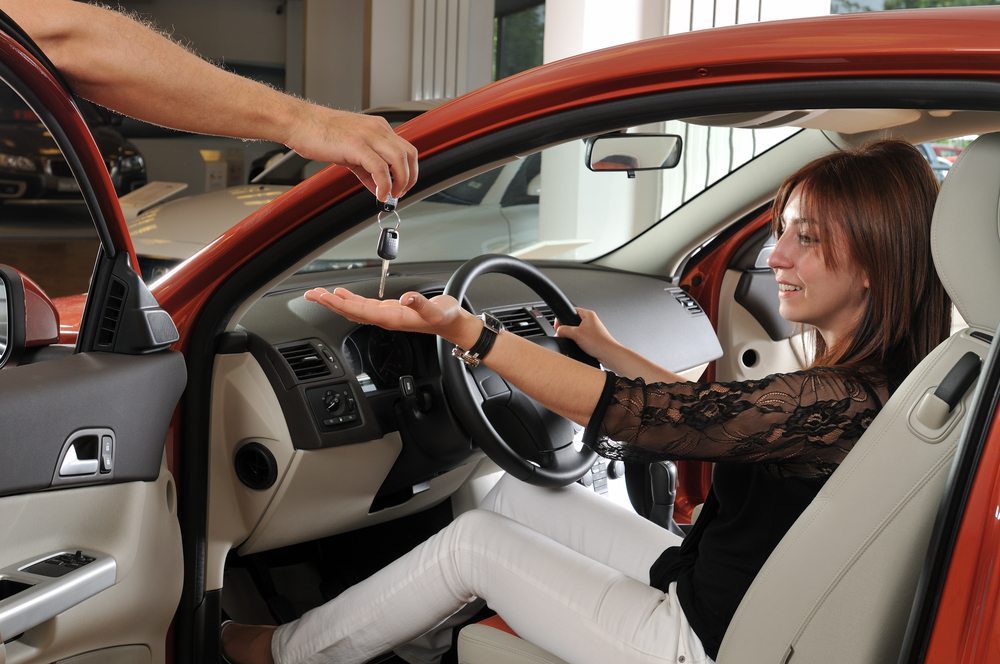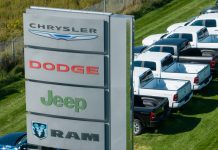Are dealers ready to adapt to these businesses’ flexibility with test drives and trade-ins? BY ZACH KLEMPF
The automotive landscape is being disrupted faster than ever before. If you thought the advent of the Internet during the late 1990s and early 2000s was a game-changer for retail automotive, then just wait for what is in store over the next five years.
Silicon Valley is funding innovation in the automotive industry and is willing to participate in hundreds of millions of dollars of venture capital and private equity funding for new business models. Meanwhile, well-known automotive players such as Cox Automotive are internally incubating companies like Flexdrive, which is a subscription-based, on-demand car service.
Amid all that activity, three newer companies come to mind for me as having the potential to particularly disrupt the traditional dealership model. These businesses want to innovate that model by fusing e-commerce with Uber-like, on-demand services.
Shift Technologies Inc., Carvana LLC and Beepi Inc. have become the automotive darlings of Silicon Valley and have been given very high valuations. Let me tell you a little more about their business models.
Shift Technologies And Trade-Ins
This San Francisco-based start-up would like to disrupt customers’ experiences with trade-ins and buying a used vehicle. In millennial terms, think of the company as Uber for test drives and Airbnb for consignment sales.
Customers of Shift Technologies can schedule test drives to start at their homes or other locations of their choosing. With trade-ins, the company assigns a “car enthusiast” to come to the customer’s location and appraise the vehicle. Shift operates on a consignment model and gives a minimum price, for which it will write a check and later split profits 50-50 if the vehicle sells for more than the minimum.
This can be very intriguing for consumers who don’t need immediate cash and otherwise might sell their car on Craigslist. Once a customer agrees to the quote offered by the car enthusiast, Shift takes the vehicle and stores it in preparation for selling.
Carvana And 7-Day Test Drives
Atlanta-based Carvana delivers a vehicle that it owns to an online shopper’s door via truck. The customer then gets a seven-day test drive to decide whether to return the car. Acting similar to a dealership in some ways, then, Carvana must survive by low overhead.
The company also will buy a vehicle from a customer who lives in one of its “live” cities, which are mostly in the Southeast. Carvana was No. 5 on Forbes magazine’s “Most Interesting Companies” list for 2015 and garnered consumer mindshare from its viral Super Bowl campaign last year.
Beepi And 30-Day Assurance
A Silicon Valley based company, Beepi has a similar business model to Shift’s except that the company will let customers continue driving their vehicles for 30 days. During that time, Beepi is trying to sell the car. The company promises that if it is unable to find a buyer within 30 days, it will buy the vehicle at a pre-agreed price.
Beepi is very strict about buying only vehicles that meet its purchase criteria. In fact, the company says only two-thirds of vehicles it inspects meet those criteria. Beepi will not buy vehicles that have suffered accidents or former rental or fleet vehicles.
It also lets a customer return the car within 10 days and gives a standard three-month, 3,000-mile warranty.
My Experience With Drive Shift
I recently had the opportunity to test Shift and compare my experience against my local Ford dealership, when I sought to sell my 2013 Ford Mustang. My vehicle had around 44,000 miles and one minor accident, so I was not able to use Beepi. Moreover, Carvana was not available in the San Francisco Bay area.
I started my research while getting an oil change at the Ford dealership. I had already researched on Manheim and had a general idea of the auction value. The Ford dealership offered me $500 below Manheim MMR due to the accident and need for minor repairs. The process was very slow, and it took around 45 minutes to get a trade appraisal.
When I got home, I went on Shift’s website and submitted my vehicle information for an appraisal. I set an appointment with a car enthusiast for a couple of days later. Within 15 minutes after that appointment started, I had a quote for my Mustang that was $1,500 above MMR and $2,000 more than the Ford dealer’s offer.
I felt Shift offered a much more expedited process and a more competitive price for my vehicle than the Ford dealer did. The only disadvantage was Shift’s limited inventory if I wanted to buy a car from the company.
Impacts On Dealers’ Used Sales
Beepi and Shift are focusing their operations on larger urban markets like San Francisco and Los Angeles. If your dealership is in a big city market, companies like these will definitely offer a legitimate option to which not only millennials but also older customers will relate, especially on the trade-in side of the business. A recent study by Accenture reported that 75 percent of respondents would consider purchasing a car via home delivery, completely online.
In some cases, these services will bring a dealership into the sales process. For example, Carvana customers likely will want to visit a local dealership to test-drive the vehicle they want to buy online, in order to experience the car’s look and feel. If they confirm the make and model suits their needs, they presumably would go home and buy it online.
Depending on the local market, a Carvana vehicle might be slightly cheaper or more expensive than at the dealership. The major selling point the company is offering is converting the traditional dealership experience into hybrid e-commerce.
However, some dealers already are taking notes from Shift, Beepi and Carvana. Dealers are offering off-site test drives that start at a potential customer’s house or workplace, as well as “X”-day return policies on pre-owned vehicles.
Dealerships also enjoy advantages of CPO programs and a bigger inventory in specific makes and models. Another fact to consider is that these services are in their infancy. Beepi, for example, only has a year in business although it already is working on a $300 million venture capital round.
I believe Shift, Beepi and Carvana in some ways pose a bigger threat to Carmax and DriveTime than to a franchise dealership. With that said, dealers definitely should take note of, and possibly adapt, these company’s streamlined processes. The alternative is losing sales of used vehicles in select, competitive local markets.








